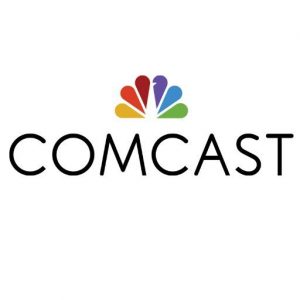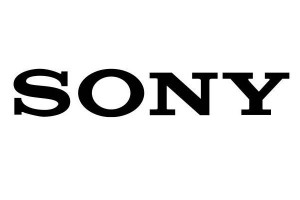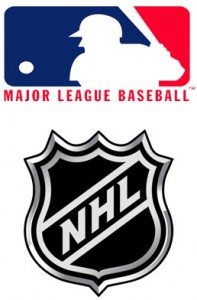 Top Class Action Lawsuits
Top Class Action Lawsuits
Phantom at the Cable Co.? No stranger to the class action lawsuit, Comcast got hit with a proposed unfair business practices lawsuit filed by a former customer who claims the telecom company overbilled, misrepresented certain charges, and billed “phantom” charges upon account cancellation. Sound familiar?
According to the Comcast lawsuit, filed by Keven Danow, Comcast Corp., and its cable subsidiary continued to bill his late stepfather’s estate for two years following the man’s death in 2014. They did this through recurring automatic bank withdrawals. When Danow complained to Comcast, he was told that because the company had no active account information there was no business relationship and therefore they had no grounds upon which to address his concerns. Nice.
“Defendant routinely engages in deceptive and unfair business conduct to extract money from customers to which it is not entitled,” the proposed class action states. “Comcast is now targeting former customers who have no business relationship with Comcast.” Hard to have a business relationship if you’re deceased. Just sayin’.
Citing a similar proposed class action against Comcast, recently filed in California, and a $2.3 million fine paid by the company to the Federal Communications Commission for unauthorized charges for unwanted equipment or services, Danow asserts that Comcast’s behavior is part of a pattern of deceptive or unfair business practices. No comment.
“Having engaged in deceptive and unfair trade practices as a core component of its business, Comcast has now targeted former customers, who no longer have any business relationship with Comcast,” the complaint states. “Comcast has illegally accessed former customers’ bank accounts months or years after the end of any business relationship between the parties and absconded with funds on deposit.”
Danow is claiming violation of the Electronic Fund Transfer Act, unjust enrichment, violation of New York business law and applicable statutes for other states.
The case is Keven Danow v. Comcast Corp. et al., case number 2:16-cv-06052, in the U.S. District Court for the Eastern District of Pennsylvania.
Top Settlements
Walmart Pays Up. $54 million in damages has been awarded by a California federal jury against Walmart in an employment lawsuit brought by 839 truckers.
The Walmart lawsuit alleges the big box retailer violated California labor law as well as federal labor law by failing to compensate its drivers for pre- and post-trip inspections and California-required rest breaks.
The jury found in favor of the truckers on those charges, but did not award damages for time spent washing trucks, fueling, weighing the trucks’ load, waiting at vendor and store locations, performing adjustments, complying with U.S. Department of Transportation inspections, or meeting with driver coordinators.
Additionally, the jury found that the drivers were under Walmart’s control during federally mandated 10-hour layover breaks. The truckers alleged that during these breaks, for which they were required to stay with their trucks, they were paid $42 for the time, not the $67 to $90 they would have earned had they been paid minimum wage during the class period. The jury awarded the drivers $44.7 million in compensation.
Determinations for penalties and liquidated damages have yet to be made. Attorneys for the truckers stated that should the court find that Walmart’s defense was not carried out in good faith, the jury’s award would be doubled. Further, the jury found Walmart intentionally failed to pay class members for more than 100,000 pay periods, and that, according to the class attorneys’ math, each unpaid period will carry a $250 fine, adding approximately $25 million to the total settlement figure.
The case is Ridgeway et al. v. Wal-Mart Stores Inc. et al., case number 3:08-cv-05221, in U.S. District Court for the Northern District of California.
Take that Telemarketers! Here’s a win—one for the little guy and a hoorah on behalf of all of us who get those pesky unsolicited phone calls. This week, preliminary approval of a $1.1 million proposed settlement was granted, in a Telephone Consumer Protection Act (TCPA) class action lawsuit pending against Alpha Gas and Electric in New York.
Filed by Stewart Abramson in July 2015, the lawsuit asserted that Alpha Gas, which provides gas and electrical services for both residential and commercial customers in New York, New Jersey, Pennsylvania and Ohio, used telemarketing to obtain new clients and allegedly made a telemarketing call to Abramson’s cell phone.
Here’s the skinny: eligible class members are defined as: all persons who, at any time, used, regularly placed or received calls on or from or owned any of the phone numbers that are listed and/or contained in the Class List, and who, from July 8, 2011 through the date of class certification, the defendant called using an automated telephone dialing system or prerecorded voice, or who were listed on the Do Not Call list or otherwise did not consent to the receipt of such calls, or who otherwise have claims against the Released Parties arising under the TCPA or similar federal, state or local laws governing such matters, including, without limitation, the claims alleged in the Action, including calls placed to cell phones without the recipients’ consent.
Abramson, as named plaintiff, is seeking an incentive award of $10,000.00. Further, Alpha has agreed to review and amend its future telemarketing compliance with the TCPA and related laws.
A final settlement hearing is scheduled for April 2017. Potential class members will have until February 8, 2017 to object to the settlement agreement or otherwise opt-out of the settlement.
Well, that’s a wrap for this week. See you at the bar…


